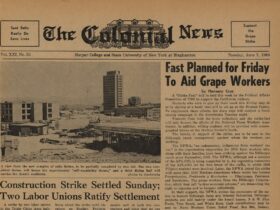On Tuesday, May 6, 2008, Archivist of the United States Allen Weinstein submitted a report, entitled The Founders Online, to the Committees on Appropriations of the U.S. Congress. This report is the National Archives response to concerns raised by the Committees that the complete papers of America’s Founding Fathers are not available online. The Founders Online is a plan for providing online access, within a reasonable timeframe, to researchers, students and the general public. The report is available electronically at the National Archives website: http://www.archives.gov/nhprc/publications.
In announcing the completion of the report, Professor Weinstein said, “We feel this plan would provide scholars and the public access to the best available versions of the complete papers; it would also protect the longstanding interests of the publishers and host organizations which along with the Federal government have invested great resources in the past four decades. Most importantly, it would build a monument to the Founders of our nation in their own words.”
The National Archives received suggestions from the editors of the papers of John Adams, Benjamin Franklin, Thomas Jefferson, James Madison, and George Washington, university publishers, and others in crafting a blueprint for providing access to the already completed print editions and the raw materials for the editions to come. If carried out, the plan ensures that interested readers worldwide can see the work in progress with the already complete editions accompanied by transcriptions of the papers yet to be published. To hasten the transition process, the National Historical Publications and Records Commission plans to invest $250,000 as a demonstration pilot project.
The plan outlines three remaining basic steps toward completion:
. Digitizing the existing 217 volumes and publishing the Papers on a single website to allow for research and inquiry across America’s Founding Era collections;
. Transcribing and otherwise preparing for publishing on the web the remaining papers (approximately 90,000 documents) and replacing these raw materials with authoritative annotated versions as these are completed; and
. Creating an independent oversight process to ensure that rigorous performance goals are established and met by the parties carrying out all aspects of the work.


